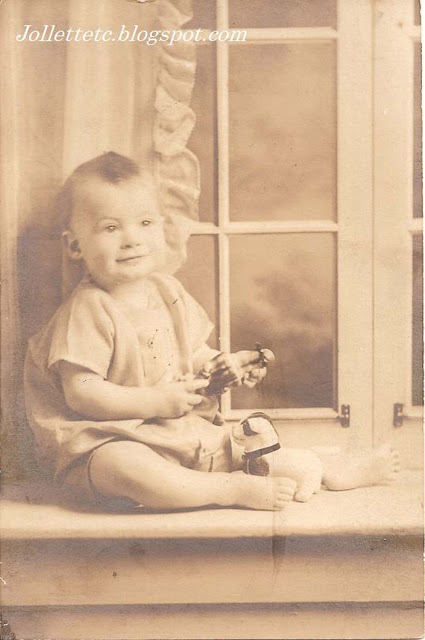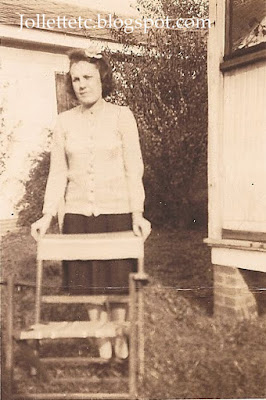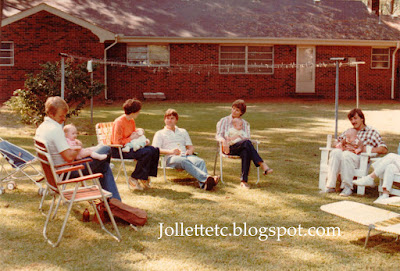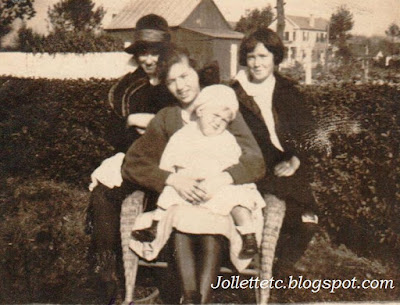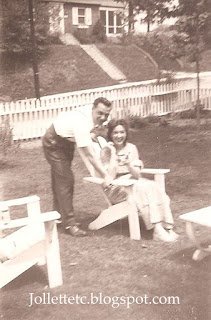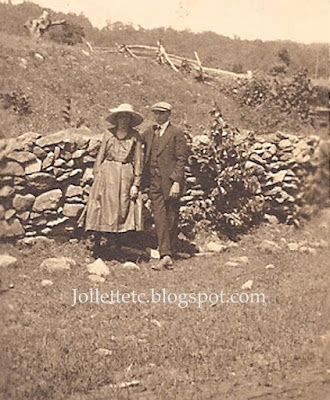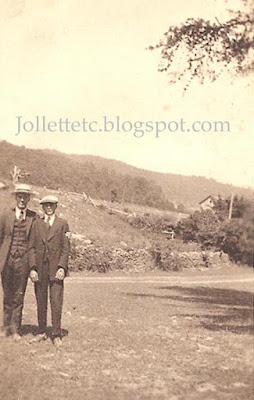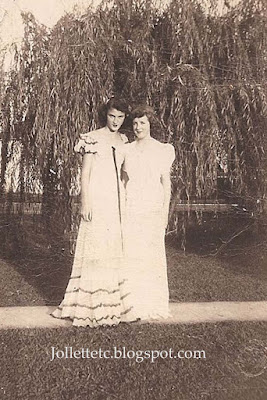Sepia Saturday challenges bloggers to share family
history through old photographs.
The miserable man in this week’s
Sepia Saturday photo
surely was never as miserable as the ex-husband of my great-grandaunt Sallie
Jollett Clift. I have written several times about George Clift. Suffice it to
say, the man’s story fascinates me as much as it infuriates me.
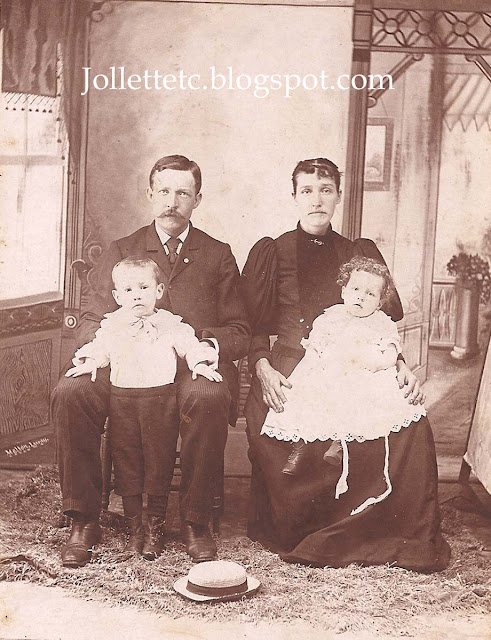 |
George and Sallie Jollett Clift
Vernon and Daisey
about 1895 |
If you don’t care to read all the details
HERE,
HERE, and
HERE, the Cliff Notes version (or CLIFT Notes, har har yeah I kill me) is this: George and Sallie had five children. The
first two died as youngsters from injuries in a house fire well before the
other three came along. Over the years George enjoyed several affairs while at
home he became verbally and physically abusive, even threatening Sallie and
their little girl Alda with a gun. In 1914, Sallie found George’s love letters
to various women and used them to obtain a divorce and a modest monthly check
for child support. To make ends meet, Sallie rented out some rooms, mostly to
men who worked for the railroad there in Shenandoah. A cloud of suspicion arose
about poor Sallie with neighbors whispering that she was running a bawdy house.
Not so, but there it is.
It must have been that gun incident that landed George in
jail in Luray, Virginia in 1914, where he became reflective about his life.
There he wrote this poem that at times makes me pity him because he obviously
loved and missed those sweet children lost in the fire; in other verses the
same ol’ mean and miserable man raises his ugly head. I can only shake mine
and roll my eyes.
4/15/14
A Song of Reflection
Writen in the Luray Jail By G. T. Clift
(1)
Kid I am sad and lonely
Since from me you ran away
And I feel you would forgive me
If you could see me here today.
(2)
And now I set and wonder
If you think this is right
I no if you could see me
That it would change your plight.
(3)
Twenty two long years dear Wifey
Since we came to old luray
And today my hart is sadist
While I was happy on that day.
(4)
It seems you have forsaken me
For someone else to roam
While I set here in prison
You are happy in my home.
(5)
I no you feel delighted
To have me in a prison cell
And I fear when you reach heaven
They send you Back to hell.
(6)
Some day you will die
You don’t know when that will be
And as the angels do come in
I think you will send for me.
(7)
It was right here in this town
In eighteen ninety two
That I forgot my sweetheart
And went and married you.
(8)
You promist you would love me
And all my words obey
And Friday you had me arrested
And I am in Jail today.
(9)
Today it brings me sorrow
And Some Kind of regret
I have two children up in heaven
And three on earth as yet.
(10)
It was on that fatal day
In eighteen ninety seven
My darling Boy he left me
And went on up to heaven.
(11)
Then there was little daisy
The pride of my life
Was all I had to love me
Except a scolding wife.
(12)
But the angels allso loved her
And I suppose they thought it Best
For Just seventeen years today
Since she went to heaven to rest.
(13)
Shore is nothing in this world
For Whitch I need to care
But I know up in heaven
I have two darlings there.
(14)
Vernon was a sweet treasure
And dear Daisey was the same
How I loved & cherished Both
Till that death angel came.
(15)
Today they are Both in heaven
A singin around the throne
Wondering why Dear Papa
Was driven from his home.
(16)
But while in this lonely prison
 |
| George Thomas Clift |
I sometimes think I see
Those two dear darling angels
A hovering over me.
(17)
I love those five dear children
Both the living & the dead
While I am here in prison
The scandals on your head.
(18)
But now I have grown old
My limbs are getting frail
A railroad man is in my home
And old Geo. Clift in jail.
Good by. Write soon.
Write soon?! What was he thinking?
George couldn’t spell worth a lick, but he sure could
crank out a rhyme.
Don’t let this story leave you miserable because there
are many fun stories from my friends at Sepia Saturday.
Wendy
© 2017, Wendy Mathias.
All rights reserved.


